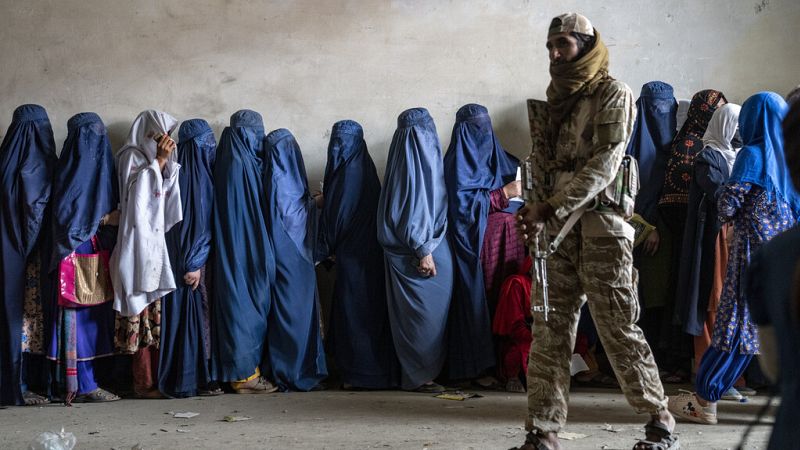EU condemns reported Taliban ban on women's medical education in Afghanistan

The European Union on Wednesday denounced the Taliban for reportedly banning women and girls in Afghanistan from training as midwives and nurses.
Several institutions that provide medical courses for women and girls have been instructed to close by the Taliban until further notice, while female midwifery and nursing trainees were ordered not to attend classes on Wednesday, according to media reports.
The ban is believed to affect about 17,000 female trainees across the country.
The Taliban have neither confirmed the order nor responded to the reports.
Since seizing power in August 2021, the Taliban have banned girls from secondary and higher education and restricted women's rights and freedoms in several ways.
The EU said the Taliban's latest reported decision represented another "appalling violation" of fundamental human rights and an "unjustifiable attack" on women's education in Afghanistan, and urged the country's rulers to reverse the policy.
"The European Union expresses its strong concerns over this decision and its far-reaching implication, including the deepening of the humanitarian crisis in Afghanistan and the exacerbation of the suffering of its people," it said in a statement.
A senior health official in Afghanistan said that the country would face major health challenges beyond the control of the Taliban if the suspension became permanent.
"If women are not trained as staff, the mortality rate of mothers and children will increase in remote areas," said the official, who spoke anonymously for fear of reprisals.
"There will not be enough staff to provide services to female patients," the official added. "Those NGOs that provide services in distant provinces and districts are still facing a shortage of doctors, midwives, nurses and other female staff."
'Already intolerable restrictions'
Afghanistan has one of the world's worst maternal mortality rates, with 620 women dying per 100,000 live births, according to the World Health Organization (WHO).
In August, the Taliban introduced new vice and virtue laws that include a ban on women showing their bare faces or speaking in public. Roza Otunbayeva, who heads the UN mission in Afghanistan, said at the time that the laws extend the "already intolerable restrictions" on the rights of women and girls.
The UN has previously said that official recognition of the Taliban as the legitimate rulers of Afghanistan is nearly impossible while restrictions on women and girls are in place.
The Taliban say they respect women's rights in line with Islamic sharia law. Its supreme leader, Hibatullah Akhundzada, said last year that Afghan women have "comfortable and prosperous" lives despite decrees barring them from many public spaces, education and most jobs.
However, the Taliban regime in Kabul has come under fire from religious authorities for their interpretation of Islam, with many experts believing the crackdown on women's rights was not in line with the faith's tenets.

